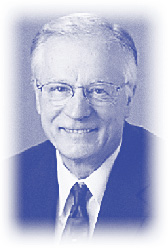
Dear Ministry Partner,
The Old Testament books of Proverbs, Ecclesiastes, and Song of Solomon are what most Bible students consider to be the Bible’s “wisdom literature.” But readers can also glean wisdom from the New Testament, especially in the last six verses of James chapter 3 and all of chapter 4. These verses offer instruction regarding how Godly wisdom and ungodly wisdom affect the Believer’s life. (“Believers” is short for “believers in Yeshua/Jesus as Messiah.”)
DIVINE & HUMAN WISDOM

(James 3:17)
We continue our study of James with 3:13, where James asks a probing question: “Who is wise and understanding among you?” James is probably addressing teachers, given his attention to teachers in chapter three. The question seeks to learn who has spiritual discernment, can see what is right, and act accordingly. “Spiritual discernment” concerns exercising wisdom, both divine and human, and applying that wisdom to everyday life.
The second half of verse 13 confirms that a Believer with spiritual discernment (wisdom) seeks to walk a good walk and not just talk a good talk. As we learned in December’s study, the tongue can say anything, but the standard by which to judge a person’s wisdom and intent lies in that person’s actions — his doing something that is good and noble.
FALSE WISDOM
False wisdom shows itself in “bitter envy and self-seeking in your hearts” (3:14). This kind of wisdom is earthly and can be demonic. The thought continues in verse 16, explaining that bitterness causes confusion, which tells us that it is not from God. In fact, we can trace confusion most often back to the tongue, as James described earlier in the chapter. The Proverbs also teach that, “A lying tongue hates those who are crushed by it, and a flattering mouth works ruin” (Proverbs 26:28).
Paul agrees with James that confusion does not come from God when he writes, “For God is not the author of confusion but of peace, as in all the churches of the saints” (1 Corinthians 14:33).
TRUE WISDOM
In contrast, true wisdom is “first pure, then peaceable, gentle, willing to yield, full of mercy and good fruits, without partiality, and without hypocrisy” (3:17). All of these attributes, and more, are seen in the life of Yeshua during His earthly ministry. They are evidence of true wisdom from above!

top: front, bottom: back
photo: courtesy agentsoflight.org/the-backside-of-the-tapestry/
As you and I conclude chapter 3, please weigh Paul’s words in Romans 8:28–29. Verse 28 is often orphaned when people memorize Bible verses. But 8:28 was never meant to stand alone. True wisdom teaches us that all things that God allows in our lives have a definite purpose.
“And we know that all things work together for good to those who love God, to those who are the called according to His purpose. For whom He foreknew, He also predestined to be conformed to the image of His Son, that He might be the firstborn among many brethren.”
Those verses do not say that all things are good, but rather that in the wisdom of God they all work together for our good. Think of all the events that have occurred in your life as a woven tapestry. On the back side, you will see the frazzled ends of threads that look chaotic. But, turn that tapestry over and you see a beautiful, perfectly stitched masterful work. That’s God — and He’s not finished with you yet!
CAUTION
As we enter into chapter 4, Godly wisdom is left at the doorstep, and the world that James describes is appalling. This chapter looks at wars and fighting and everything that comes from a self-indulgent life. As you may know, this is not a pleasant, edifying chapter in James, or in the Bible as a whole. Yet, here is a challenge of studying an entire book: You cannot skip over the difficult parts.



middle: Zorn (Wrath),
bottom: Geitikait (Avarice)
woodcuts by Hans Burgkmair the Elder, circa 1510 from the series “The Seven Vices,” The British Museum
Chapter 4 begins with a question: “Where do wars and fights come from among you?” (4:1a). The question isn’t about military wars of the world, but about conflict in the Christian community. Bible readers don’t know the nature of the conflicts that prompted James’s comments, but some scholars agree that the struggles concerned worldly interests, such as influence, reputations, position, and money. Unfortunately, many of you, our ZLM partners, have witnessed divisive attitudes in churches — parishioners no longer considering each other as brothers and sisters in the Lord but as adversaries. In our modern world, we cannot escape Solomon’s insight that “nothing is new under the sun” (Ecclesiastes 1:9).
James’s question is answered in the second part of verse 1: “Do they not come from your desires for pleasure that war in your members?” This sounds a lot like Paul’s struggles in Romans chapter 7. We don’t have time to consider all of Romans 7, but one verse will serve as a reminder of Paul’s struggles.
“For the good that I will to do, I do not do;
but the evil I will not to do, that I practice” (Romans 7:19).
Verse 2 reveals the connection between “lusts” and “wars and fighting.” James points out the obvious: that when someone seeks his own will instead of God’s will, the consequences can be staggering. The warning is clear: When a man wants something that he cannot have (i.e., covets), he will be filled with jealousy, causing strife (war) within the community of faith.
But, the answer to this dilemma is given in the last part of verse 2, where James tells us that prayer is the solution. “Yet you do not have because you do not ask.”
Verse 3 states that prayers were being made, but with the wrong motive. Verse 2 gave the impression that prayer was not being offered. Verse 3 clarifies that prayer was being offered, only for the wrong purpose. God delights in hearing and answering the prayers of His people, and we can come to Him with confidence that He listens and answers, as John tells us in 1 John 5:14. “Now this is the confidence that we have in Him, that if we ask anything according to His will, He hears us.”
The terms “adulterers” and “adulteresses” in verses 4–6 are not meant sexually but, rather, characterize spiritual adultery, like the story of Israel’s unfaithfulness to God in the Book of Hosea. The Believer is instructed to have his heart set on things above, not on things below. God has great expectations for Believers, but He makes great provision to carry out His expectations. “He gives more grace” (4:6).
Verses 7–12 offer directives to overcome self-will. The first directive, “submit to God,” is followed closely by “resist the devil.” In this passage, the Greek word for “resist” means to stand firm in your convictions. I find it comforting that God encourages us to take a stand against evil (the devil), assuring us that when we do, evil will flee.
God will draw near to us when we draw near to Him. When this happens, we gain confidence in our service to God and others. We know from verse 6 that God uses those who humble themselves. If you are looking for a place of service in the Kingdom, then humble yourself before God, “and He will lift you up” (vs. 10). In order to be individuals whom God can use, we must leave the final judgment of other Believers to God. He is the Lawgiver and the only One who has the right to judge. But, does that imply that we should turn a blind eye to sin? In his book Who are You to Judge (Moody Press, Chicago 2002, pg. 42), Pastor Erwin Lutzer wrote:

“Keep in mind that the word judge means to exercise discernment; at other times, it can mean to condemn; and sometimes, both ideas are present. But clearly, Jesus does not teach that all judging is wrong. Judging, or discernment, lies at the heart of Christian living.”
And finally, verses 13–17 are a wake-up call to all of us. What person with Biblical wisdom would plan anything without God? The nature of our lives is like the vapor formed by your breath on a cold morning, or as Job described it in Job 7:9, “a vanishing cloud.” Is it wrong to plan for the future? Of course not! But, as James has shown in his conclusion of chapter 4, it is presumptuous for us to make plans without the guidance and blessings of God.
A HUMBLE REQUEST
Would you please pray with ministry workers for guidance from God as Zola Levitt Ministries continues to be “a voice crying in the wilderness” (John 1:23) to our Jewish friends who need their Messiah? Thank you!

Standing firm with Israel and ZLM,



P.S. We will conclude our study of James next month with the final chapter, turning our attention to preparation for things to come — namely, Yeshua’s Return! 

A Note from David and Kirsten
It’s March, and that means it’s tour time! This will be our second spring tour to Israel with Zola Tours. The good news: It’s been a very rainy winter in the Holy Land, and our son has been sending photos of spectacular ground color in Israel. Rain is an incredible blessing in Israel, and the mountains and valleys are “showing off” their breathtaking beauty.
Throughout our ministry literature and on Zola Levitt Presents we encourage you to take a pilgrimage to the holiest land on Earth. Why? Because the Bible comes to life before your very eyes. Nothing compares with touching ancient Biblical history with your own two hands or walking the exact same streets and roads where Jesus walked and taught.
If you’ve ever traveled with Zola Tours, please write to tell us how that trip affected your life. What would you share with other ZLMers to encourage them to go with us to the Holy Land? We’d love to include in future publications personal experiences about the impact a Zola Tour can have.

Zola Tours to the Holy Land
To see what we’re doing on our Spring Tour (March 10–22), please look for the photos we’ll be posting to our Zola Levitt Presents Facebook page as the tour progresses. If you aren’t already following us on Facebook and Twitter, we encourage you to do so. You will find timely news updates and insights about Israel as well as fun, informative videos. Dr. Jeffrey Seif frequently posts mini teaching videos, too, for our social media friends.
There’s still time to reserve your spot on our Fall Tour. And, I must say, adding Paul’s ministry in Greece and a Greek Islands cruise puts our fall study tour itinerary over the top! If you’d like more information, please get in touch with our travel manager Sandra at 214-696-9760, email her at travel@levitt.com, or visit levitt.com/tours to explore the following options:

Fall Tour 2019 options
| Deluxe (Israel only) | Sep 16–26 | $4,988 |
| Grand Petra (Israel & Petra) | Sep 16–29 | $6,188 |
| Grand Athens (Greece & Israel) | Sep 10–26 | $7,988 |
| Ultra Grand (Greece & Israel & Petra) | Sep 10–29 | $9,188 |
 Zola Levitt Presents Programs in March
Zola Levitt Presents Programs in March
We conclude the refreshed series about the life of Messiah’s precursor, King David. These teachings are vitally important and extremely relevant to what is happening in America right now.
Originally produced in 2009, The Warrior King: David-like Leadership for Goliath-like Times tells the story not only of King David’s era but also of our own time. With challenges larger than Goliath all around us, society needs Bible-based leaders now more than ever. Dr. Jeffrey Seif teaches this eight-part series from Israel, then joins David and Kirsten Hart in the studio for up-to-date analysis of each program’s lesson. We hear location reports from Chaim Malespin and the music of Zola Levitt.


- Israel’s Sweet Psalmist
- David’s gift for creating poetry and music shows that he was in touch with something beyond the state of his armies. Viewers will benefit from this program’s window into the softer side of Goliath’s slayer and King Solomon’s father.
- Messiah
- Messianic parallels abound in the person of David. In this closing program, we consider their various applications and implications.
The new series Divine Deliverance: from Avraham to Yeshua begins in the middle of the month, so be sure to set your DVR or mark your calendar.
- Abraham
- A journey into an unforeseen future began with a step of faith toward a promised land. The God of Israel still leads those who follow Him, oftentimes through barren places. He shows His power in weakness.
- Isaac
- The promise of a child to an elderly couple came in an angelic message. Father Abraham’s willingness to sacrifice his only son, Isaac, involved an act of obedience by each of them. Their successful test of faith pictures the redemption to come.
As always, we thank you for financially supporting Zola Levitt Ministries. In contributing to our ministry, ZLMers normally think in terms of cash. However, levitt.com/donate offers worthwhile options such as vehicles, gift cards, and financial assets. Donating jewelry that you no longer wear can help us spread Yeshua’s Gospel.
Your contributions to this ministry are tax deductible. Please uphold our effort in prayer and ask your friends and family to do the same. Sha’alu shalom Yerushalayim! — Pray for the peace of Jerusalem! — Psalm 122:6 ![]()
In His service,
David & Kirsten
P.S. For information about creative ways to donate, you are welcome to email, write, or call: Zola Levitt Ministries, PO Box 12268, Dallas, TX 75225-0268; (214) 696-8844 — Office; staff@levitt.com; 1-800-WONDERS (1-800-966-3377) — Answering Service
Zola Levitt Ministries is ECFA approved and has Charity Navigator’s top rating of 4 stars, plus Ministry Watch’s Give With Confidence Score of 100.

Feedback
Dear Tony,
I will pray with ZLM for God’s wisdom in being “a voice crying in the wilderness,” accessible to all Jews with the Gospel of Yeshua.
"*" indicates required fields
Featured Products
Donation
Here is my donation for March. I am thankful that Zola Levitt Ministries continues to bring anointed Bible teaching from Biblical locations in Israel.
“Called Together — Jew & Gentile, One in Messiah” video
Called Together focuses on how gentile Christians are recognizing their Messianic brothers and sisters (Jewish believers in Jesus/Yeshua) as the natural olive branch Paul referred to in Romans 11. The Lord calls us to work together to bring the Messiah especially to the lost sheep of Israel.
“Zola Teaches the New Testament” video
Zola gives a fresh, interesting survey of the entire New Testament before a live audience. A real collector’s item, beautifully packaged.
“A Survey of the New Testament” audio
A concise overview of Scripture from the Gospels to Revelation. Zola’s point of view is unique. One CD covers Matthew to Revelation with surprising clarity.
Copyright © 2019 Zola Levitt Ministries, Inc., a non-profit 501(c)(3) organization. All rights reserved. Brief passages may be quoted in reviews or other article. For all other use, please get our written approval.





